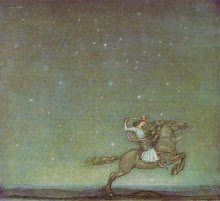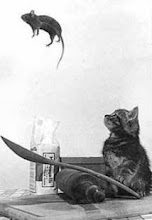Confessions of a Guerilla Gardener By Stephanie Ericsson "I live in Frogtown," I told my friends in New York nine years ago, when I moved to this neighborhood in St. Paul. The name conjured up the image of a quaint little village Who knows where the moniker "Frogtown" Frogtown has never been gentry-fied. It's pure hoi polloi. A bevy of working-stiffs, emigrants & refugees. It's the largest, poorest, youngest, most ethnically diverse neighborhood in the Twin Cities. Without a doubt—it's the 'hood. I got my first clue to this when the neighborhood patriarch, who'd live on my block for the past 60 years, asked me, "Why would you move here voluntarily?" Well, coming from New York, it looked like a normal neighborhood to me…and besides, it had a double lot for my passion—gardening—at an affordable price. Now, I'm not a social butterfly and I'm sure no social worker so if it wasn't for my garden, I wouldn't know any of my neighbors. But it seems that when you're always down on your knees, digging in the dirt, you're granted a universal diplomatic passport. Anybody will talk to you. In my nine years , crawling around my garden down on all fours in Frogtown, I've met just about everyone in the 'hood—Little kids who want a drink from the hose on a hot day and ancient Mung women who smile, point at my flowers, nod, and smile again; barefoot hookers, coming home after a night's work , carrying their 4 inch spikes; dignified old men in hats pushing their grand babies in strollers; gang-bangers looking for their lost pit bulls and sleepy mothers waiting for school buses; twitchy tweakers waiting for their dealers and dog walkers who keep track of my blossoms. Neighbors—all of them. But I confess, my garden grew into my way of protesting. I hated all the garbage in the gutters and the total lack of beauty anywhere. Why, I wondered, are rich neighborhoods so clean and ghettos so dirty? I remember, when I was a kid, asking my mother if we were poor. Without any shame, she answered, "Yes, baby, we're poor." So, my next question was, "Then, how come we aren't dirty?" "Because, darling, soap is cheap." But in a place where the sheer relentlessness of poverty sucks away any enthusiasm, where litter blows freely from curb to curb, hopelessness eventually becomes part of the landscape. Depression is the weather report. We even begin to believe that we don't deserve to be happy, or clean, or successful. And we certainly don't deserve beauty around us. Beauty is an unattainable luxury—something you can't afford, especially if you use the local food shelf… Right? But beauty is powerful. It changes how you see the world. It changes how you feel in the world. It lifts you up as it fills you up. If you doubt it, just try being miserable on a beautiful day. Just try to stay depressed in a lovely garden. It isn't possible. Because beauty is a basic human need. It isn't an indulgence. It isn't superfluous. It's as necessary as air. And it's even cheaper than soap. Imagination and a little hard work are free. That is how my garden grew. I was so weary of ugliness that I picked up the garbage not only from in front of my house but in front of my neighbors' houses too. I planted more perennials. And annuals. Petunias, pansies, peonies, daisies, dianthus, phlox and cleome. I figured that if I made my corner gorgeous, kept my corner clean, maybe someone in a funk would feel a little better when they walked by. If someone saw me picking up garbage in the street in front of their house, maybe people wouldn't throw it out in the street. If I put out a bowl of water for thirsty dogs, they'd be really happy. Maybe one or two kids would feel proud of their neighborhood. What I figured was that if at least one person smiled everyday because my garden pleased them, it would be a victory. It might just give someone who needs it, a little bit of hope. And I would have struck a blow against poverty—the kind of poverty that deadens the soul after a while. It won't save the world, but it's something. In return, I get to live around beauty and defy those forces that drag us down so we lose our self-respect. Strangely enough, people rarely litter any more on my corner. Best of all, I get to know my neighbors. After so many years of gardening, most people would have become master gardeners by now. But me? I've become a guerrilla gardener... Copyright © 2009 Stephanie Ericsson All Rights Reserved Come see my garden at The Guerrilla Garden
with baskets of petunias hanging on every lamp post. I couldn't restrain the snort that escaped from me when I heard that. "Trust me—" I said, "—there isn't a Starbucks within two miles."
was coined—but the land used to be swampy and has always been populated by immigrants. Most likely, it was a combination of the name, Froshburg, (frog city) that its German settlers used for it and the ancient and politically incorrect nickname used for the French, who also settled here. Either way, Frogtown was populated by frogs and the name stuck.
I never forgot her answer. Poor doesn't necessarily go hand-in-hand with dirty—or ugly. .
Sunday, April 6, 2008
Defiance
Subscribe to:
Post Comments (Atom)























No comments:
Post a Comment
Please! Do leave your comments, shared experiences and suggestions are very welcomed. And also a way to contact you. Thank you!